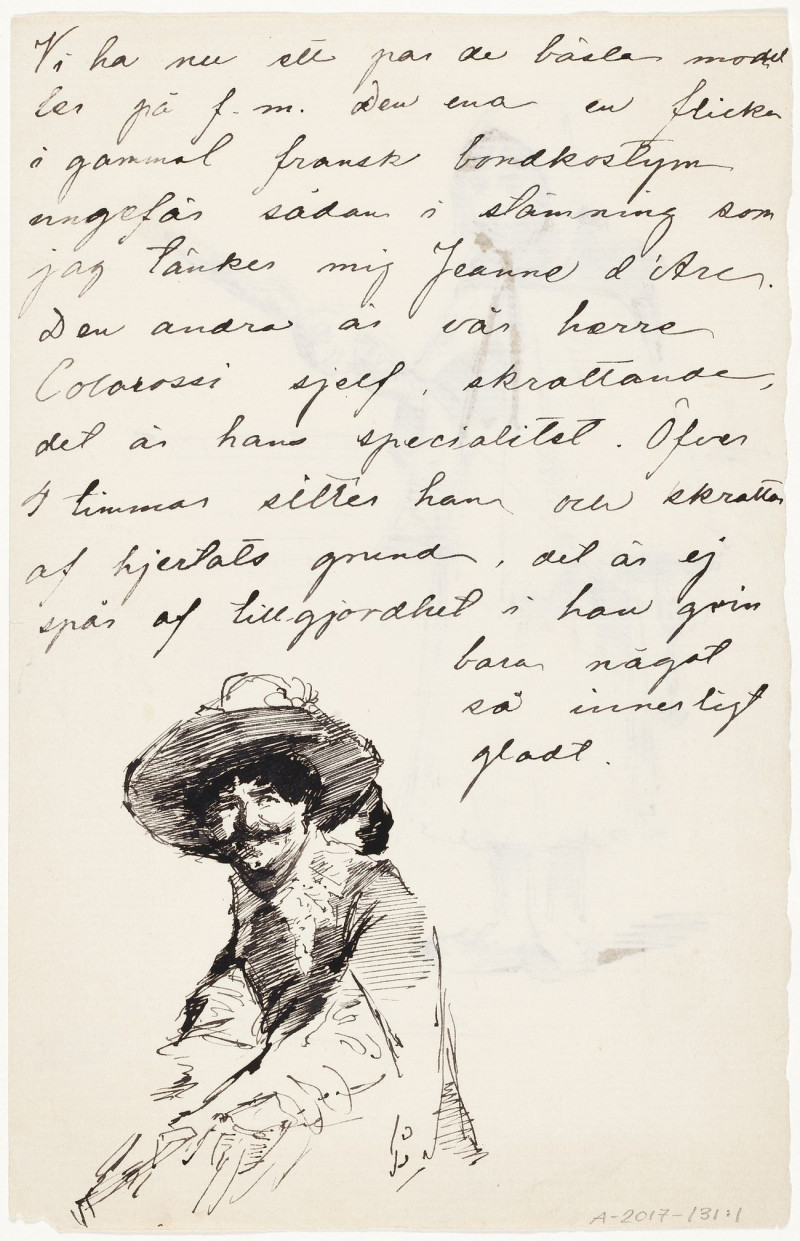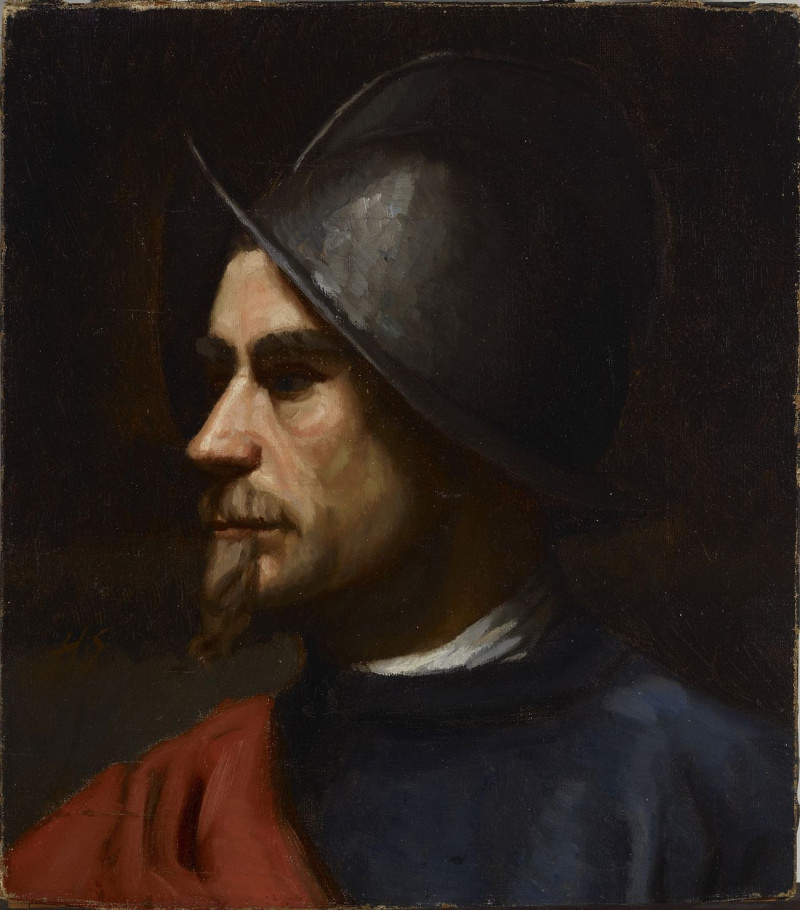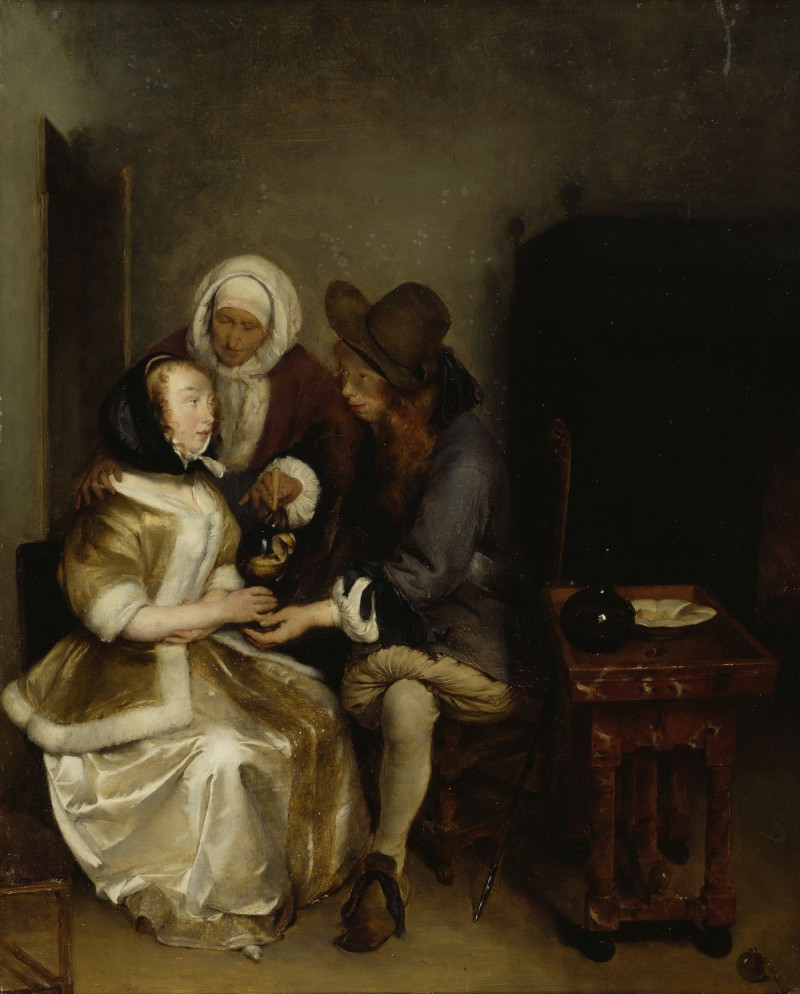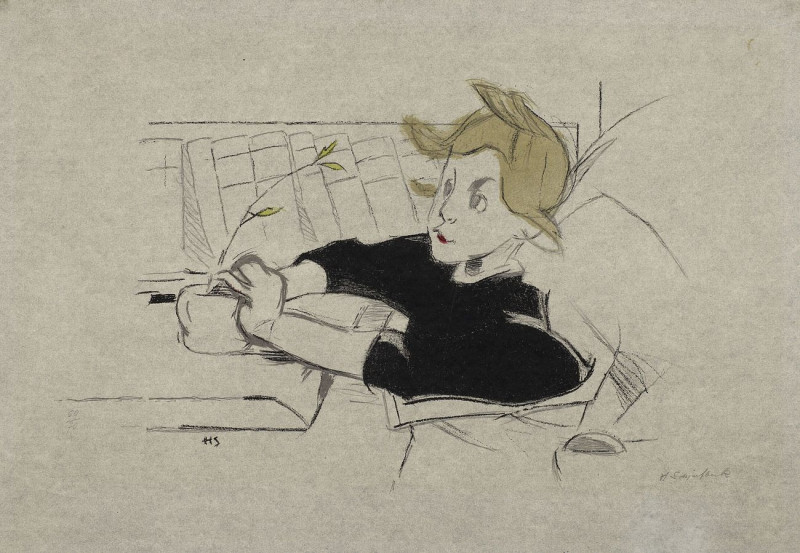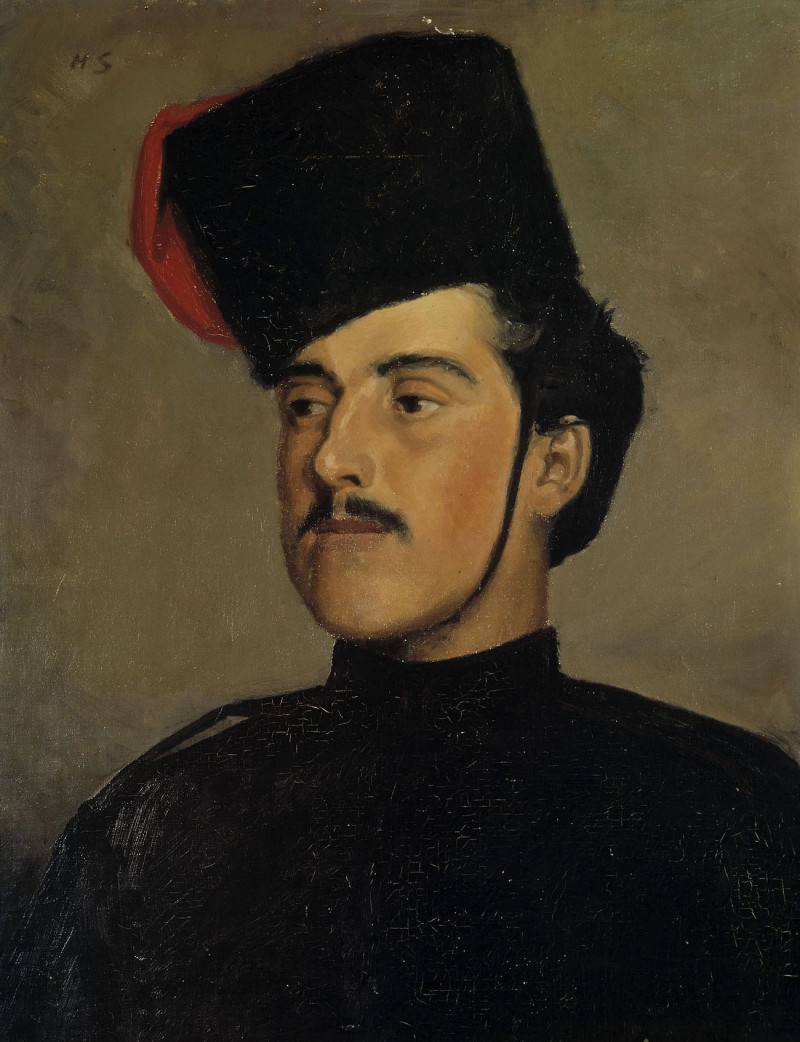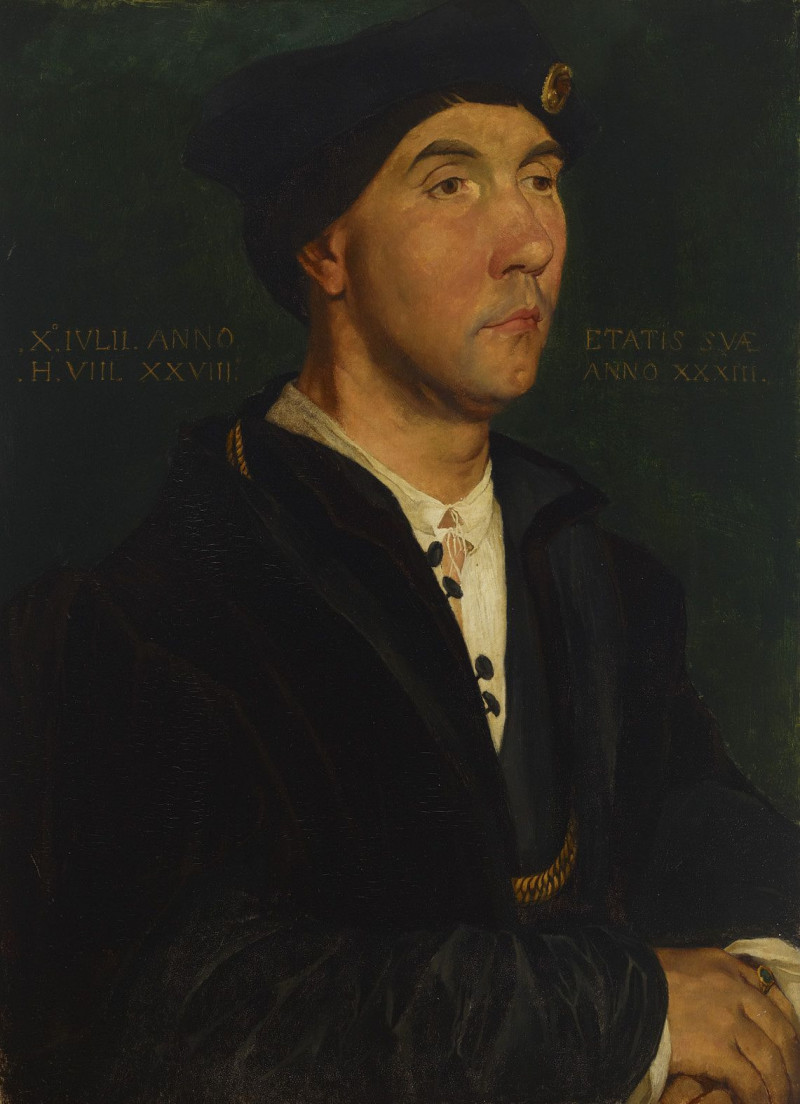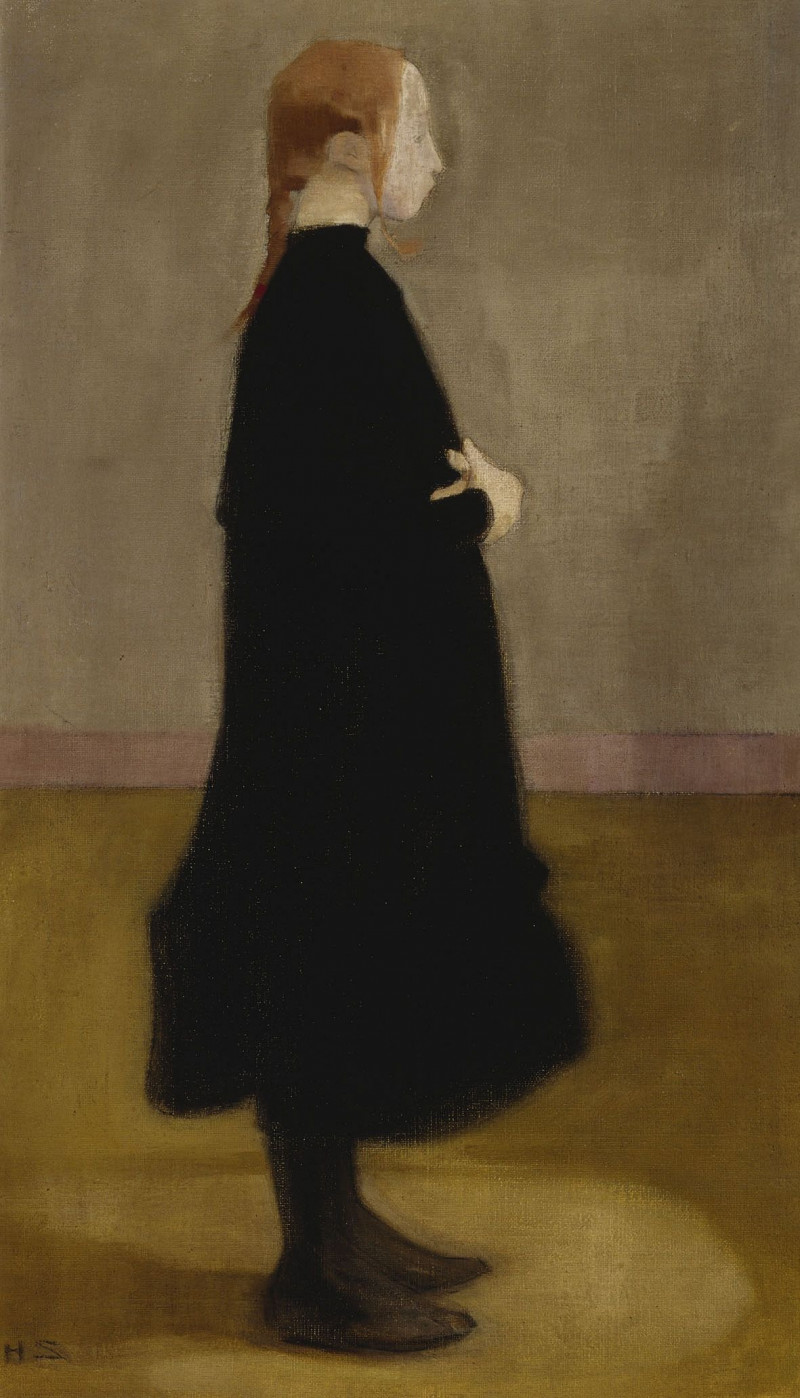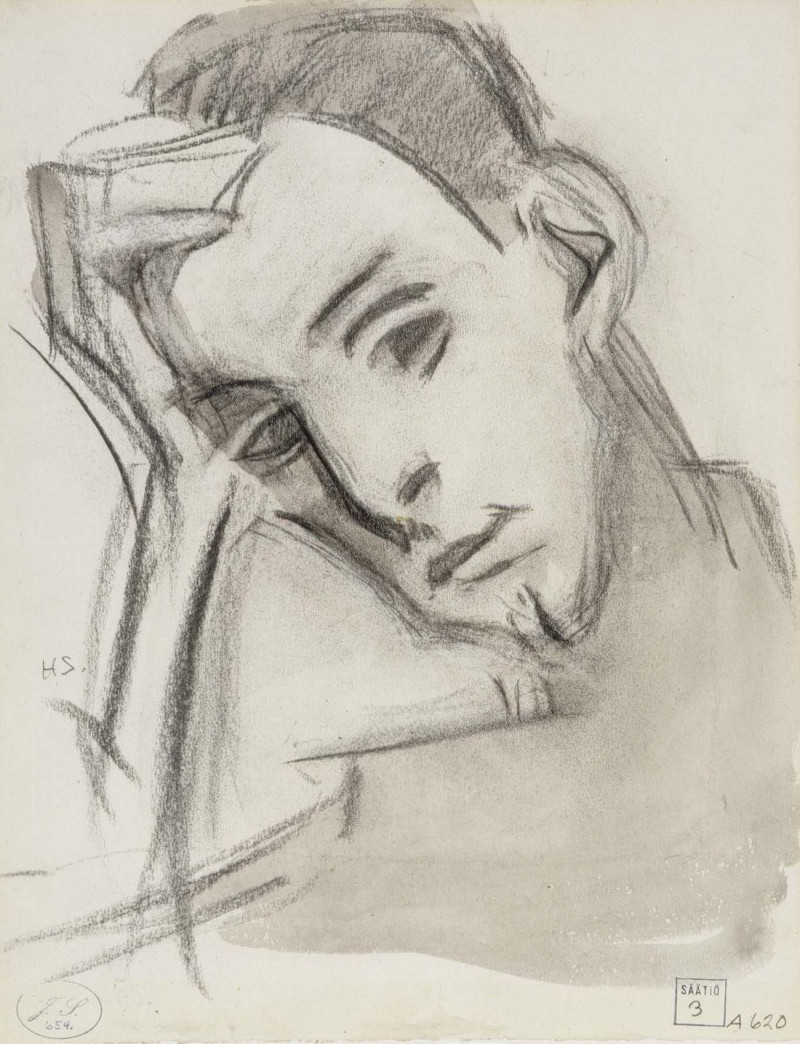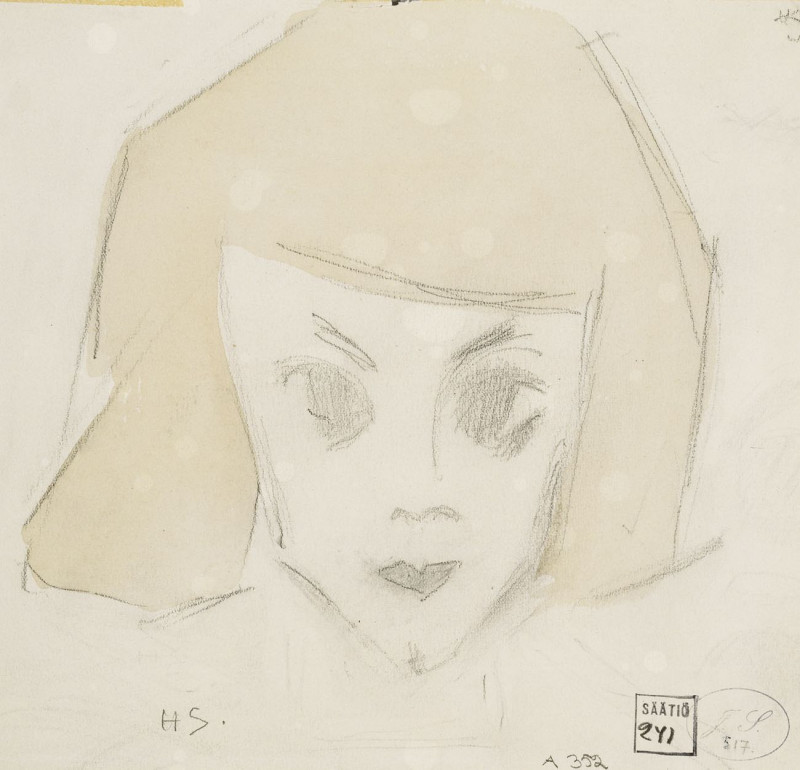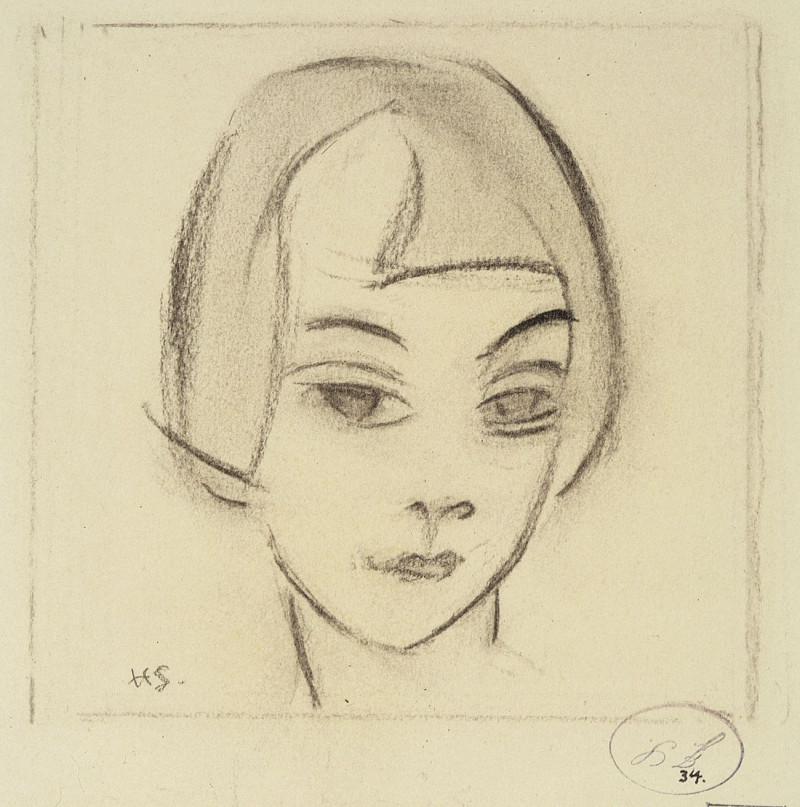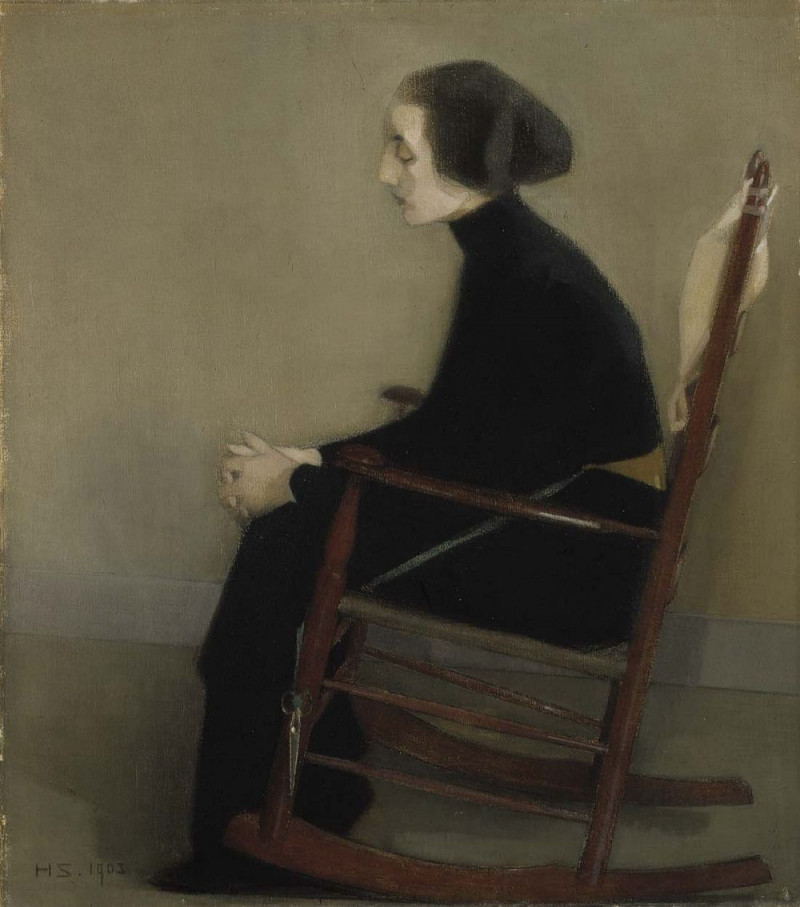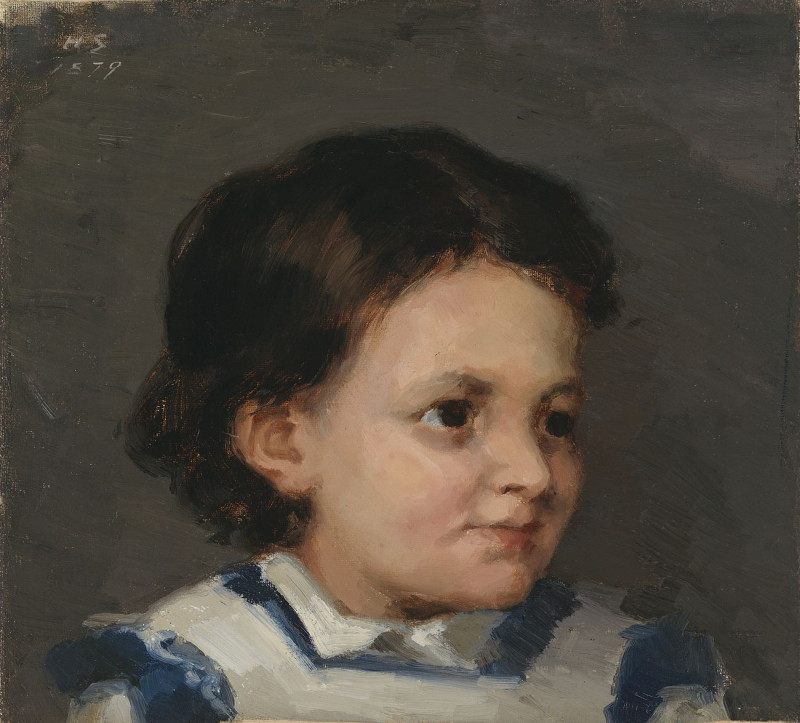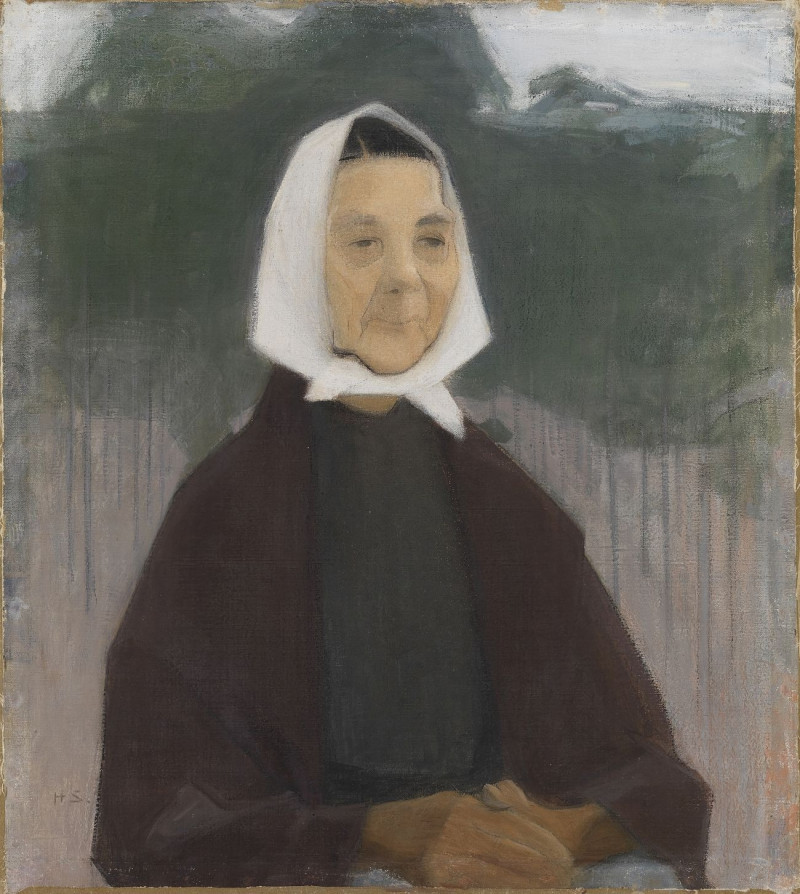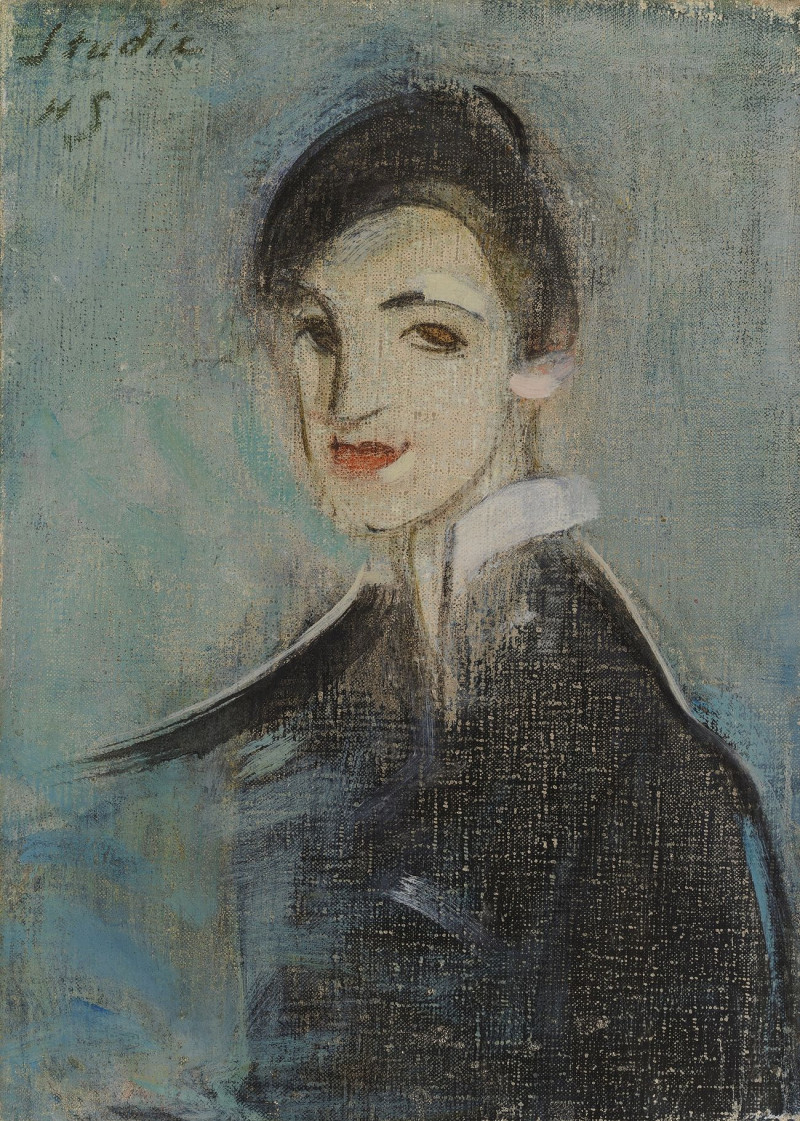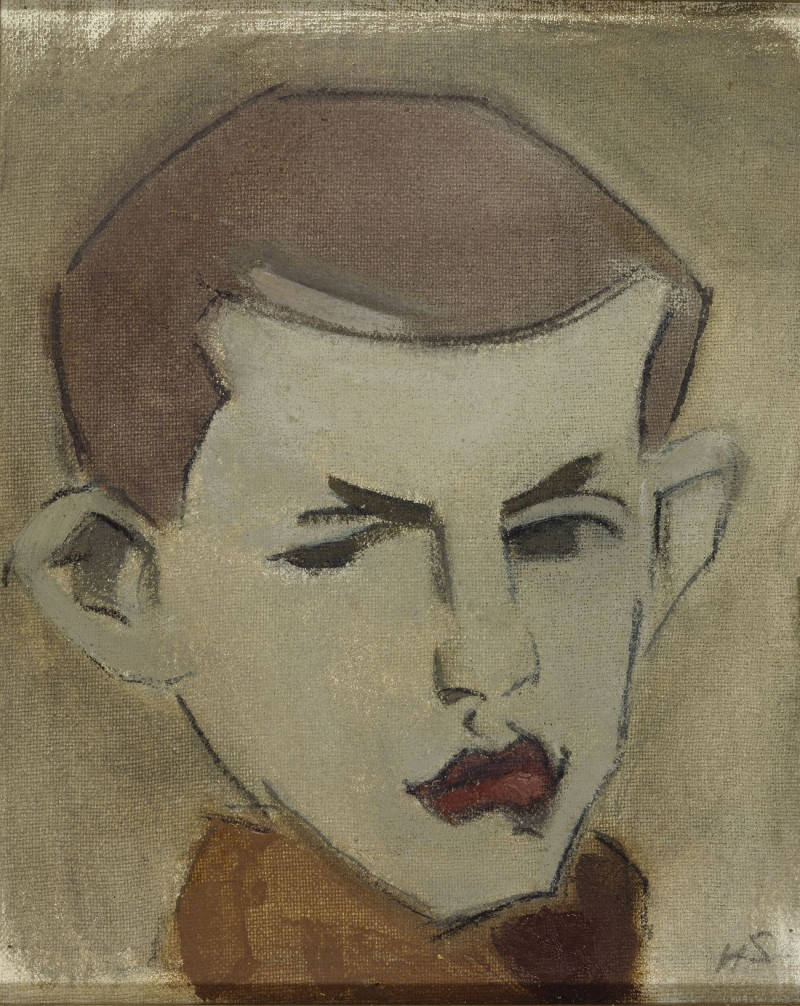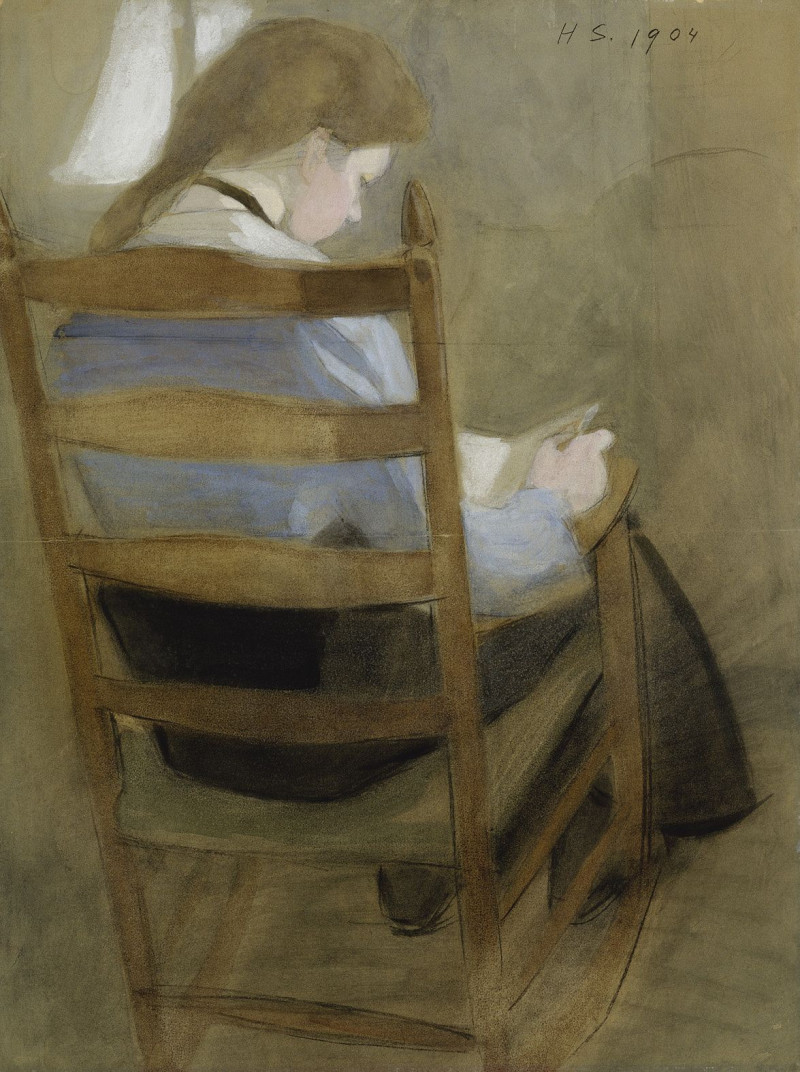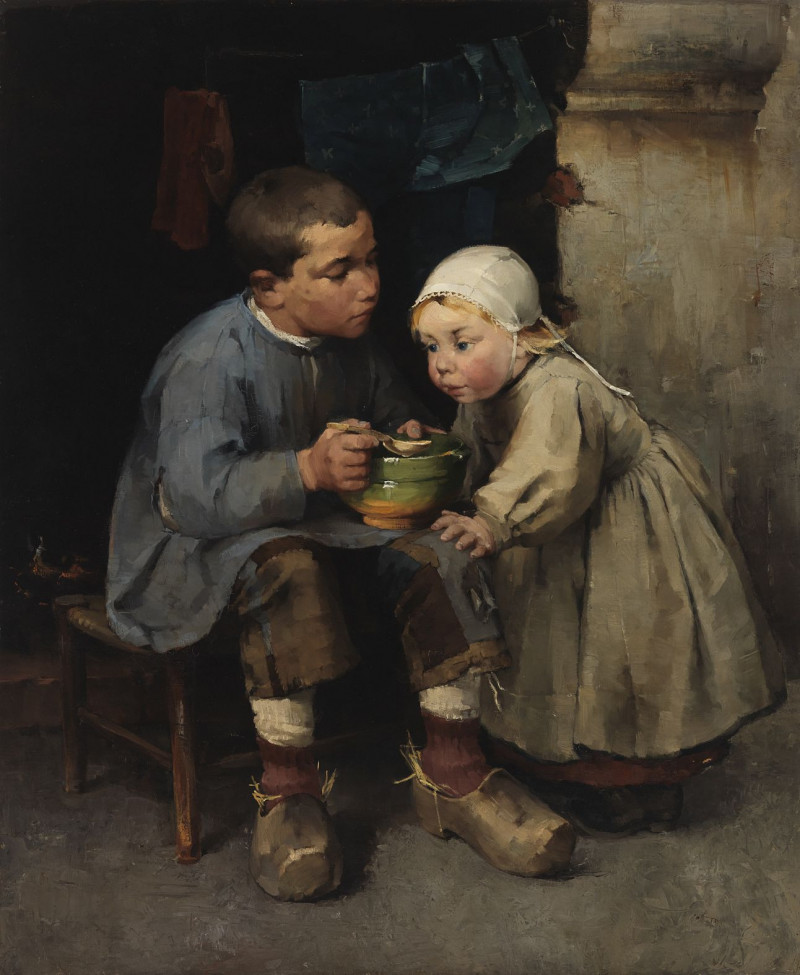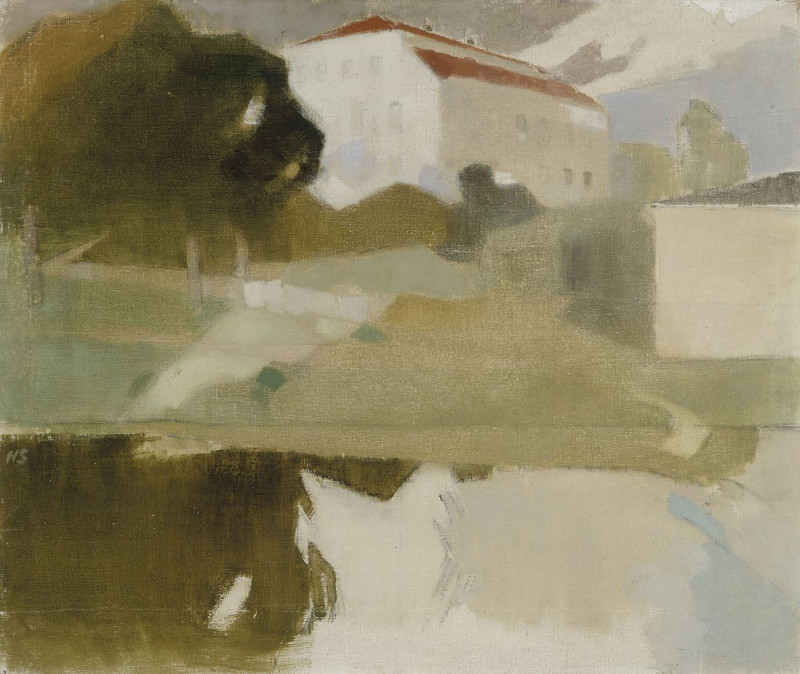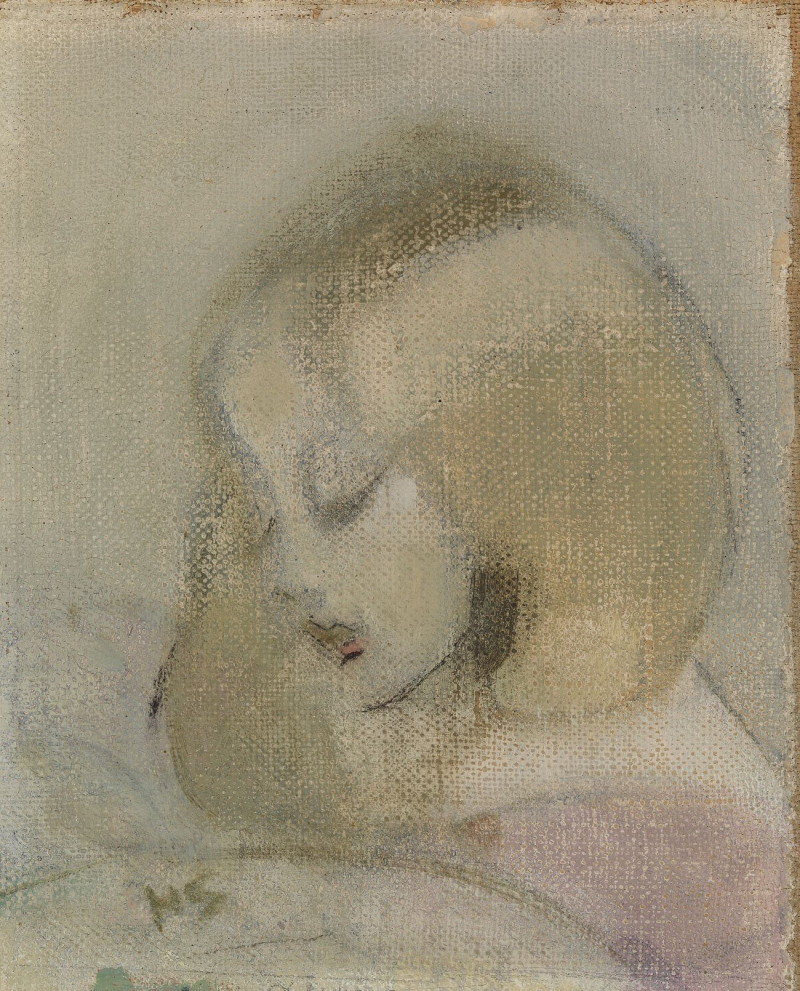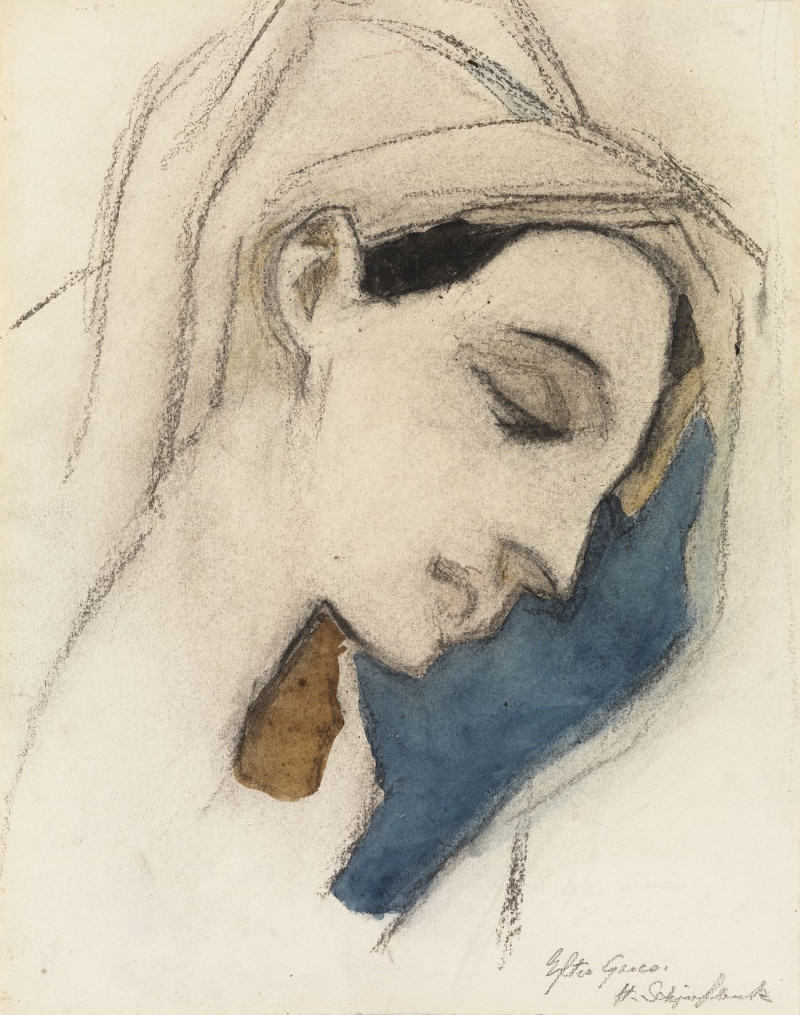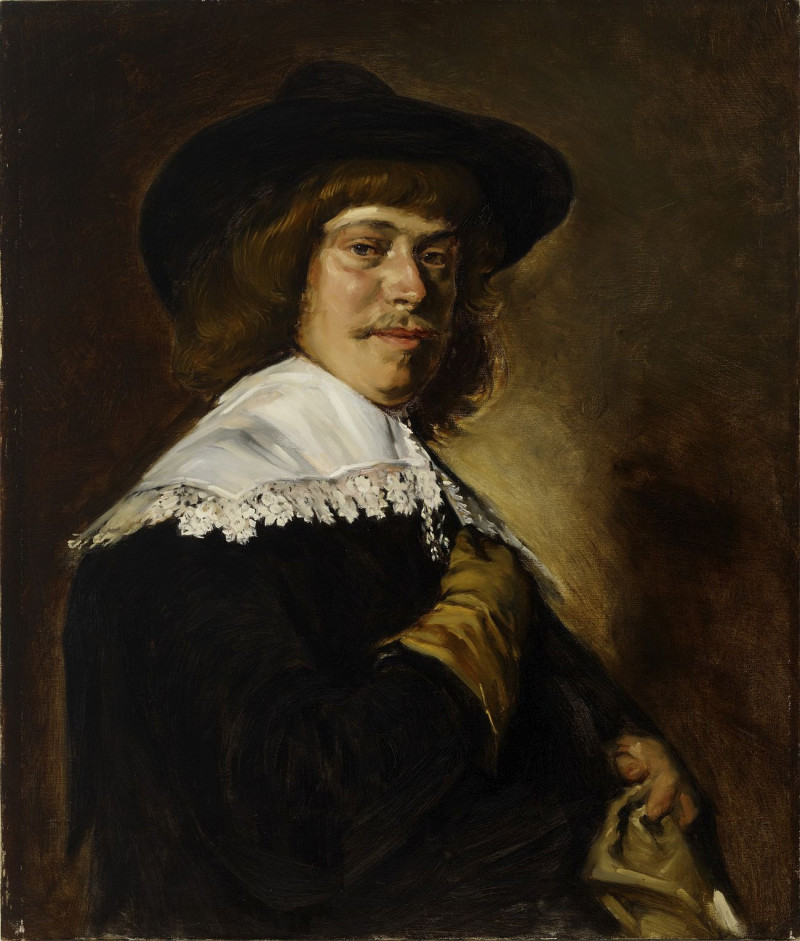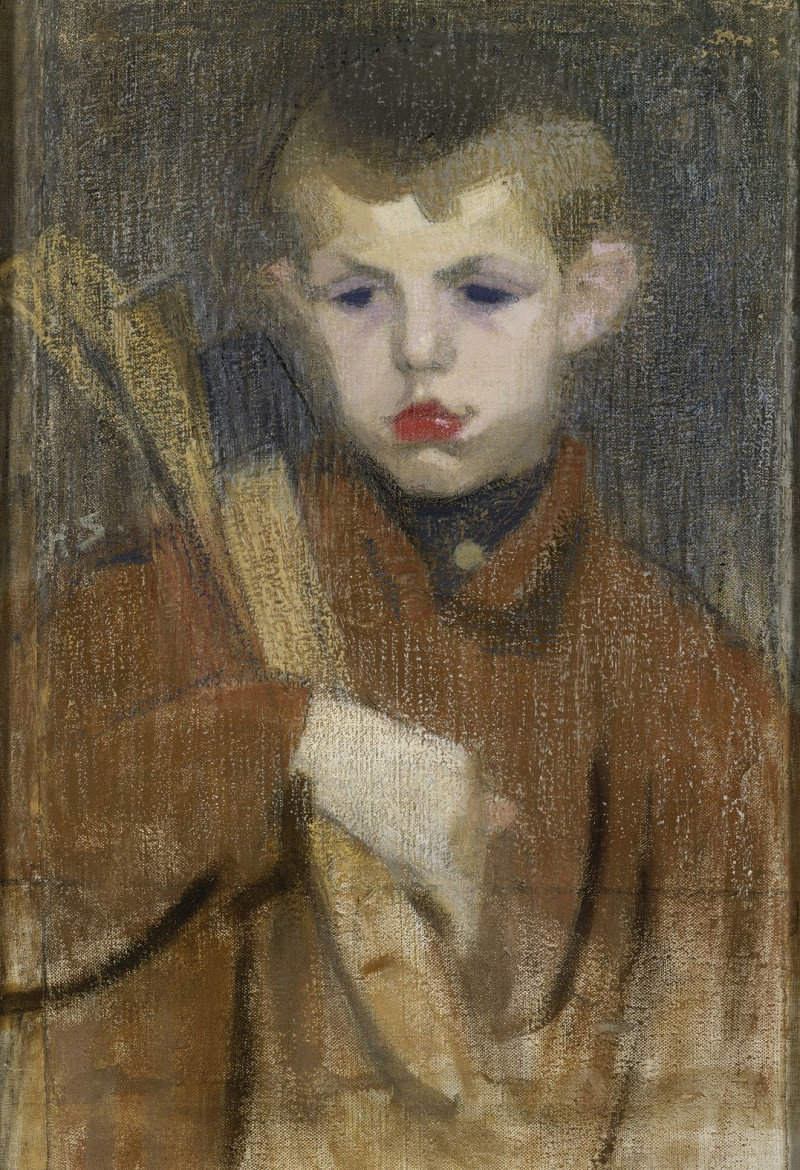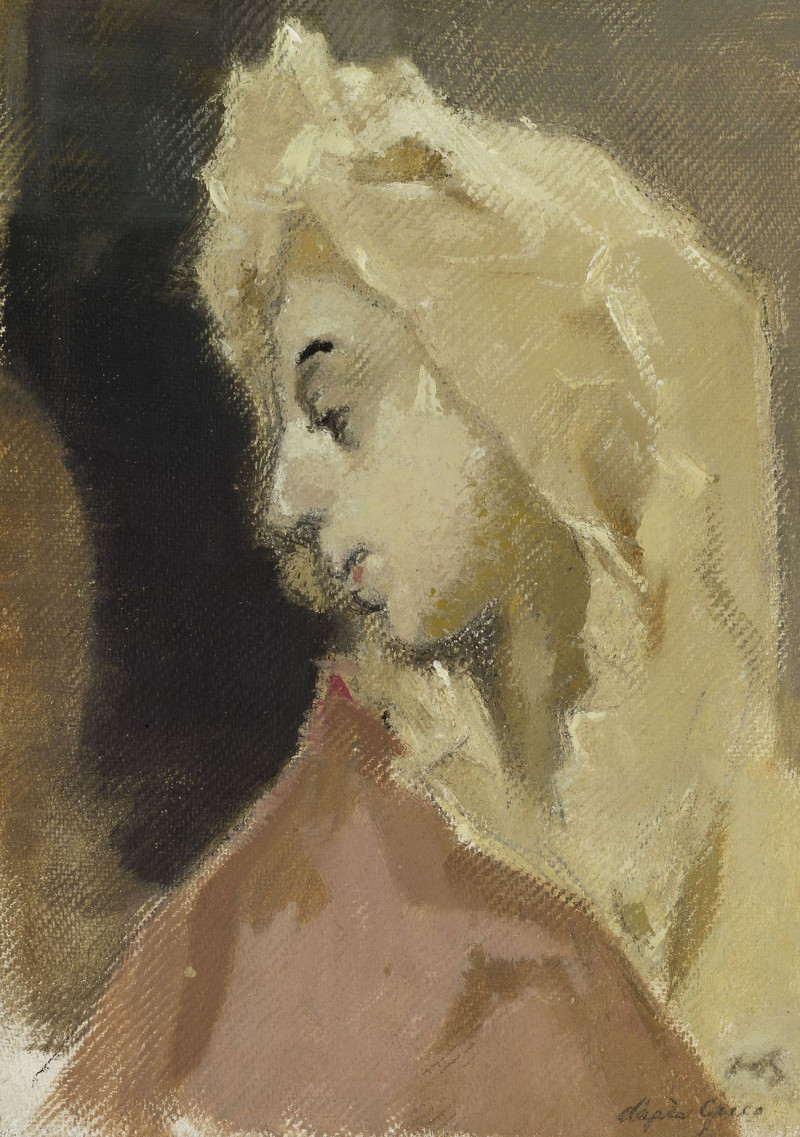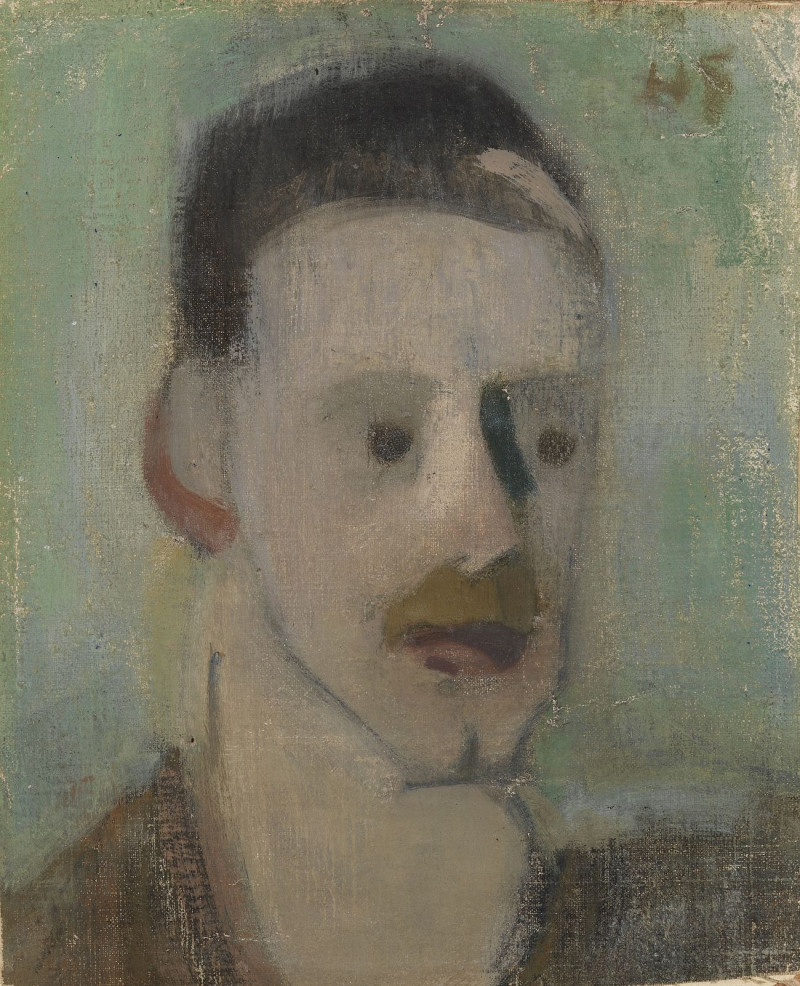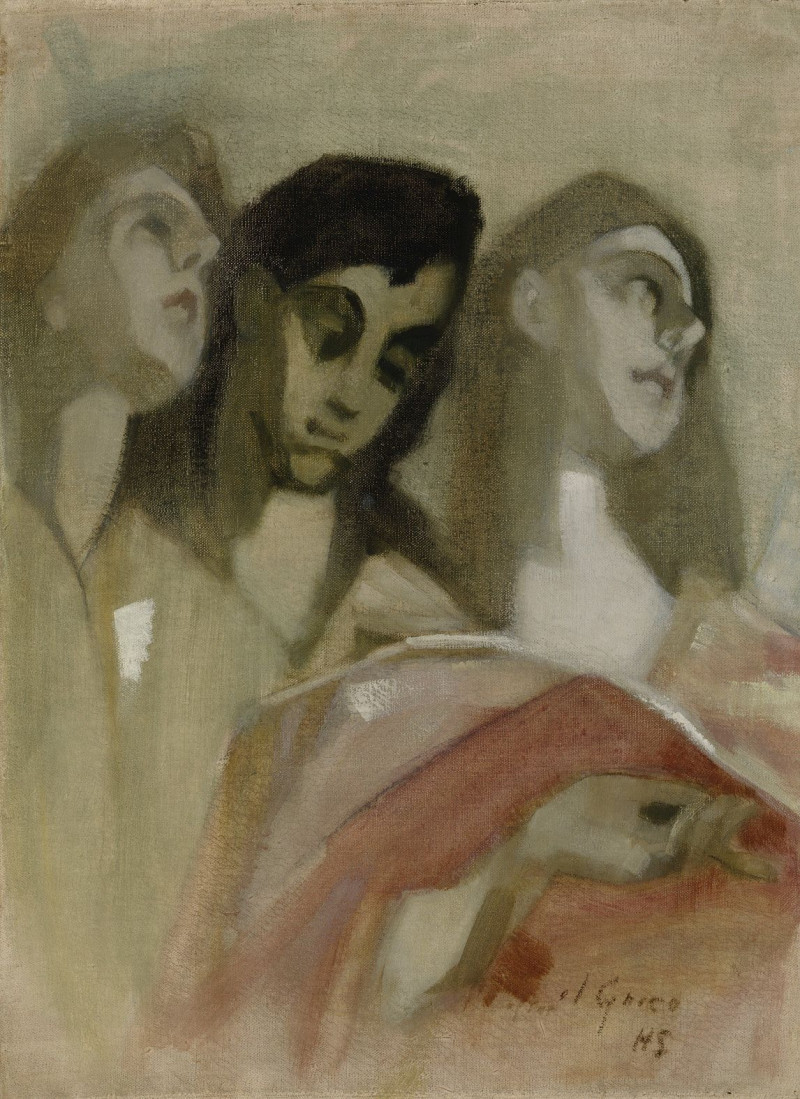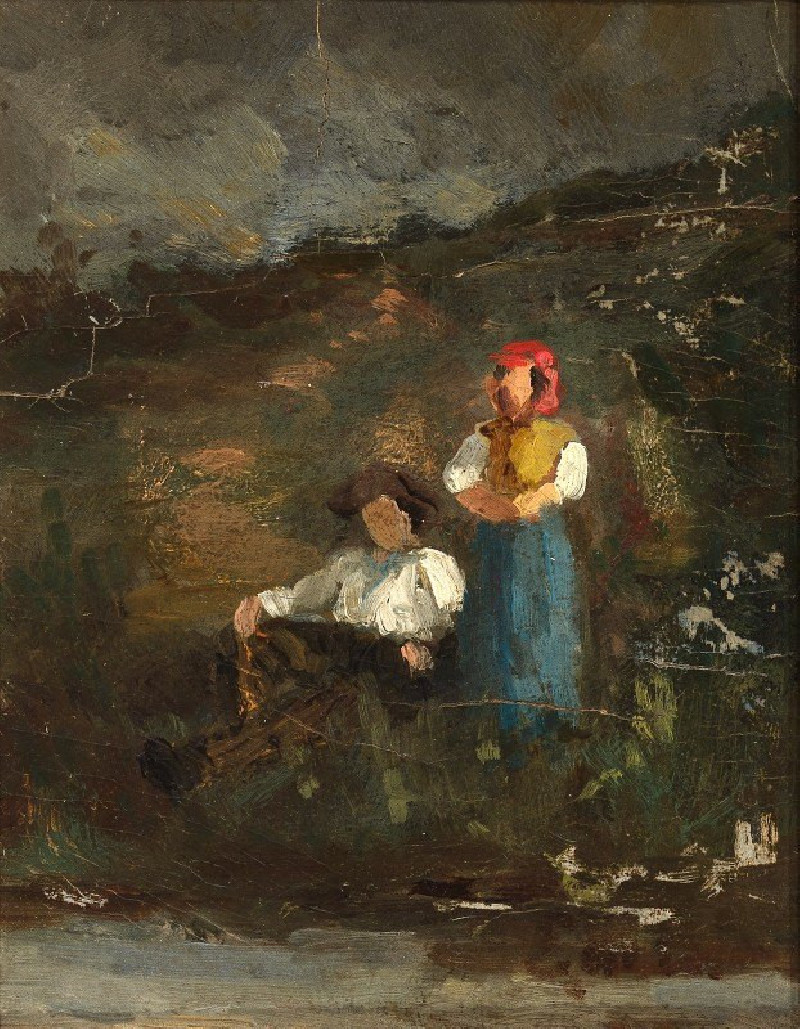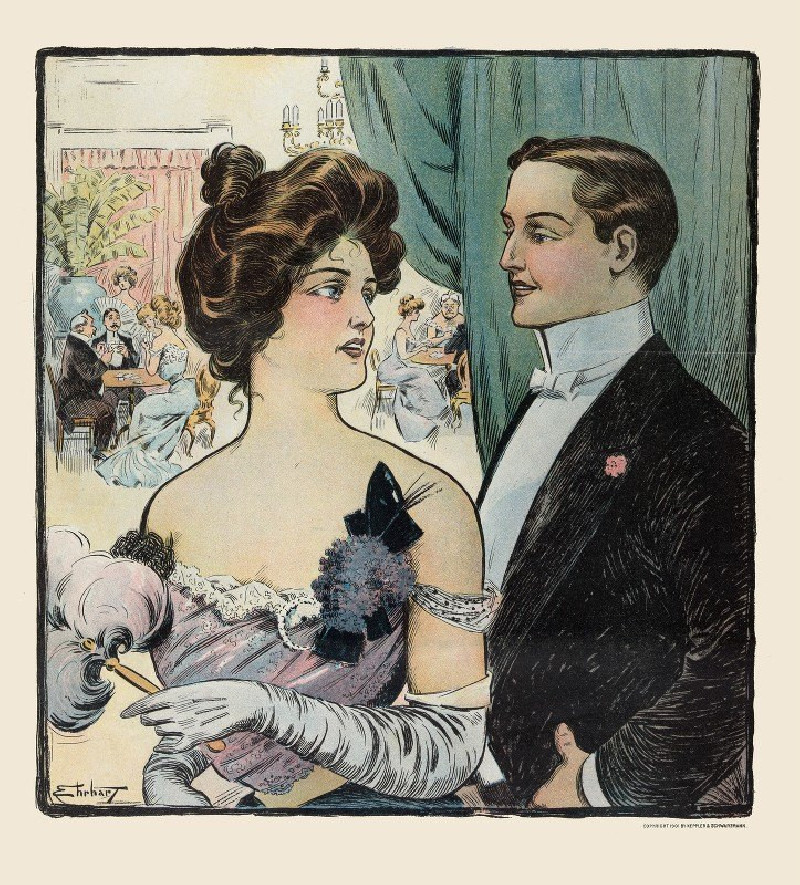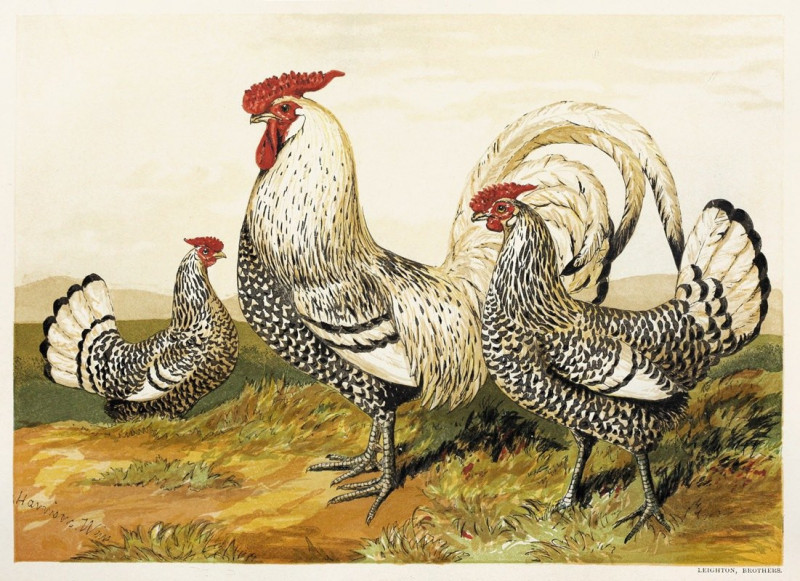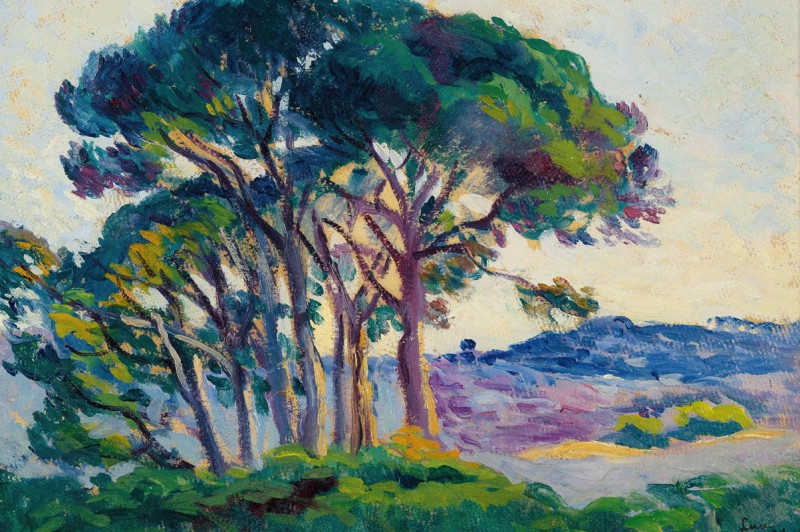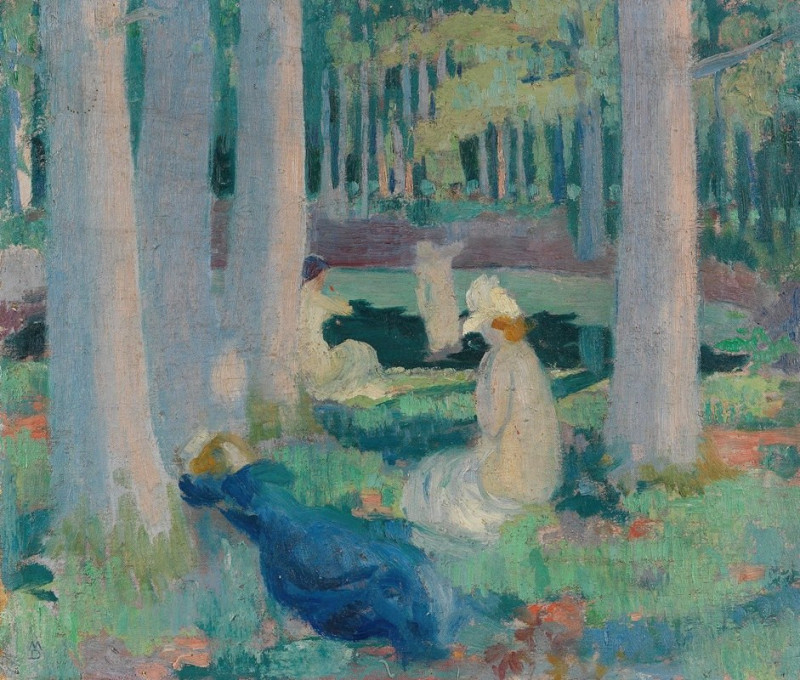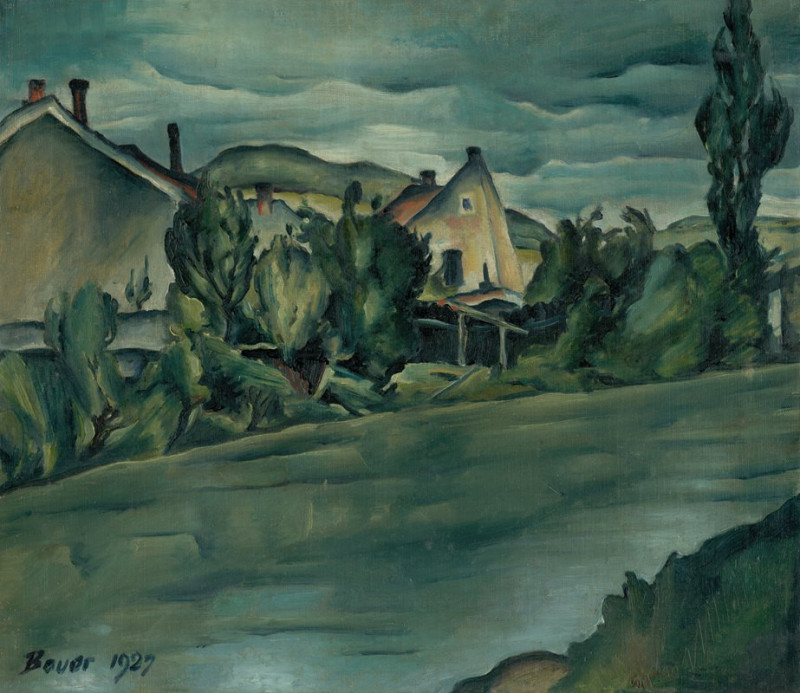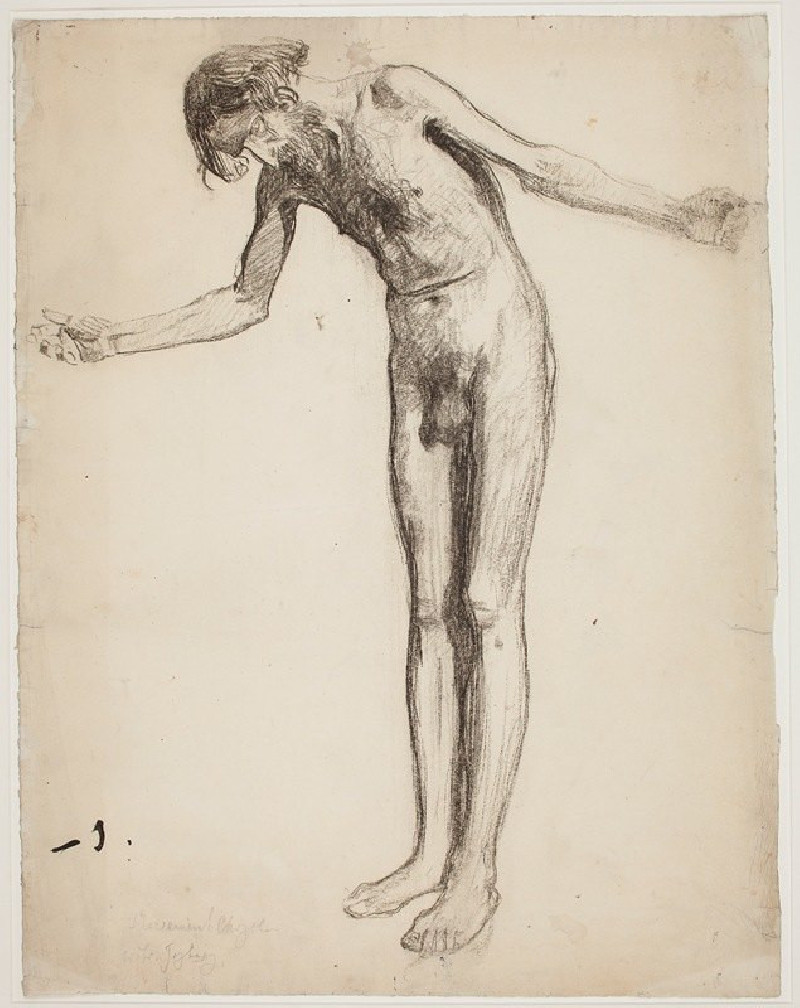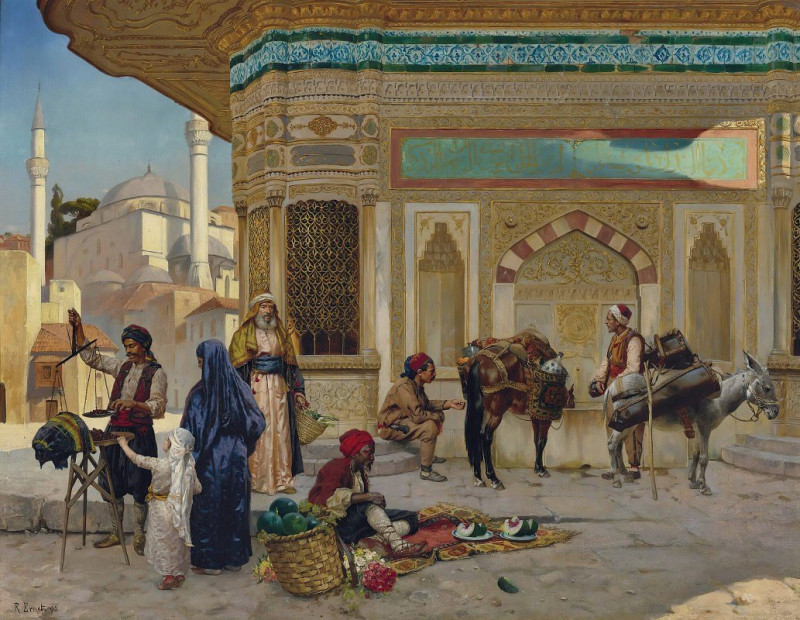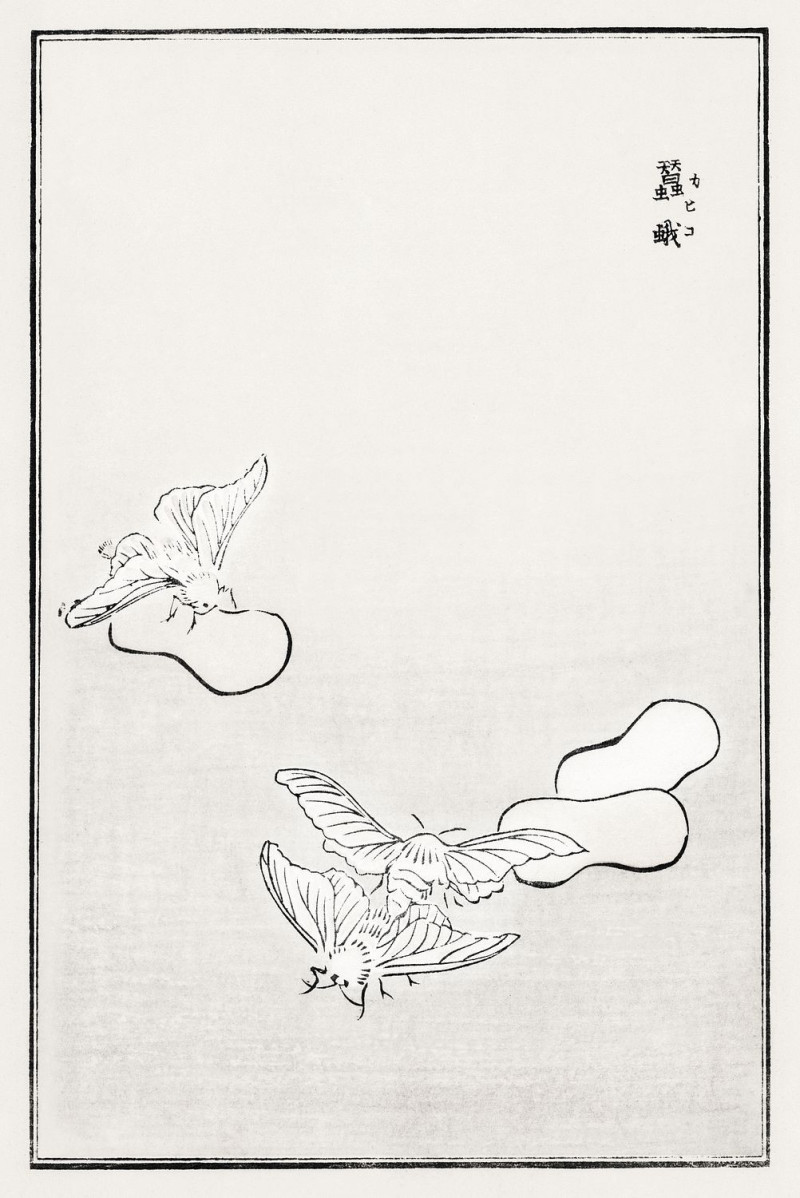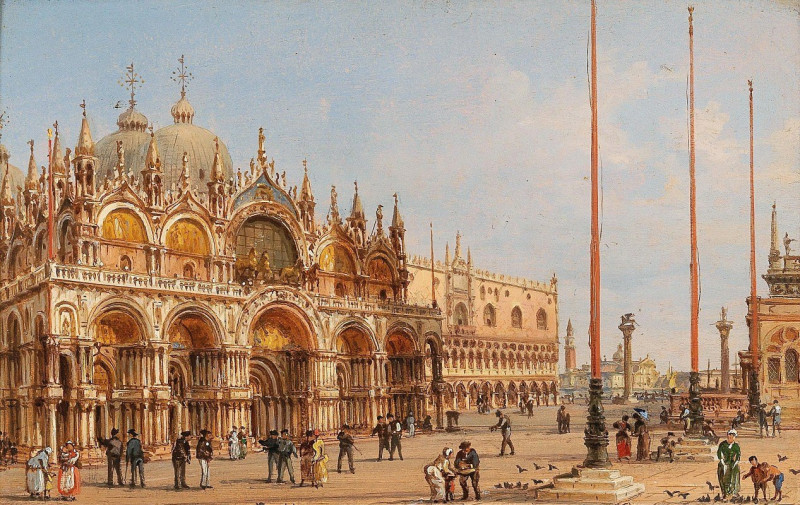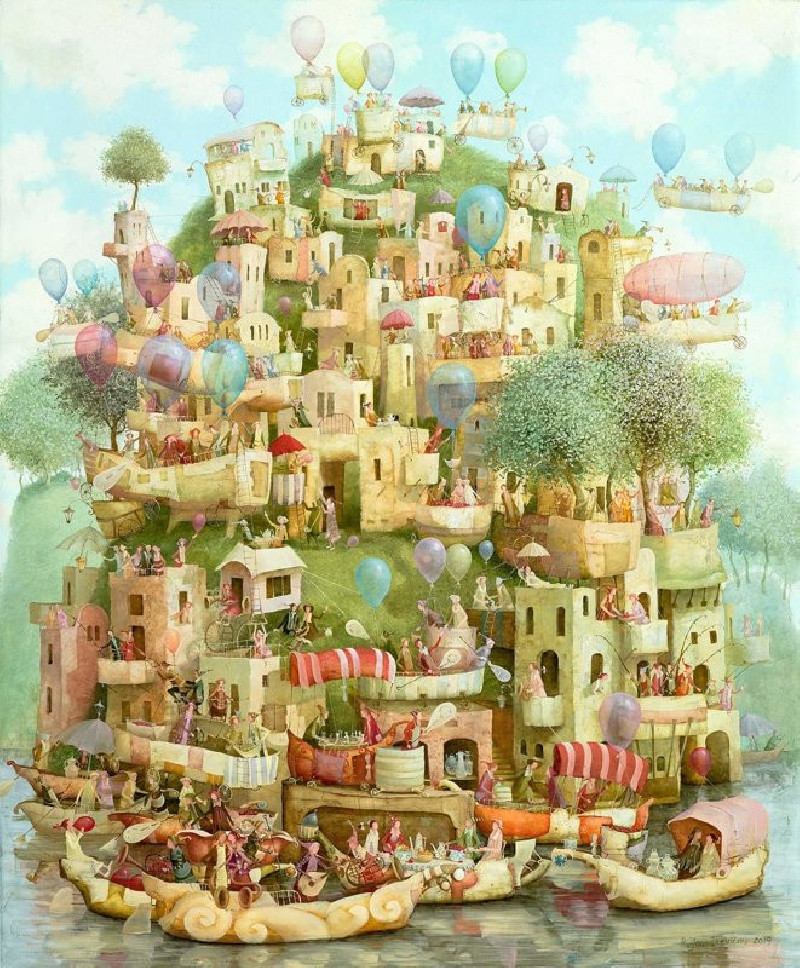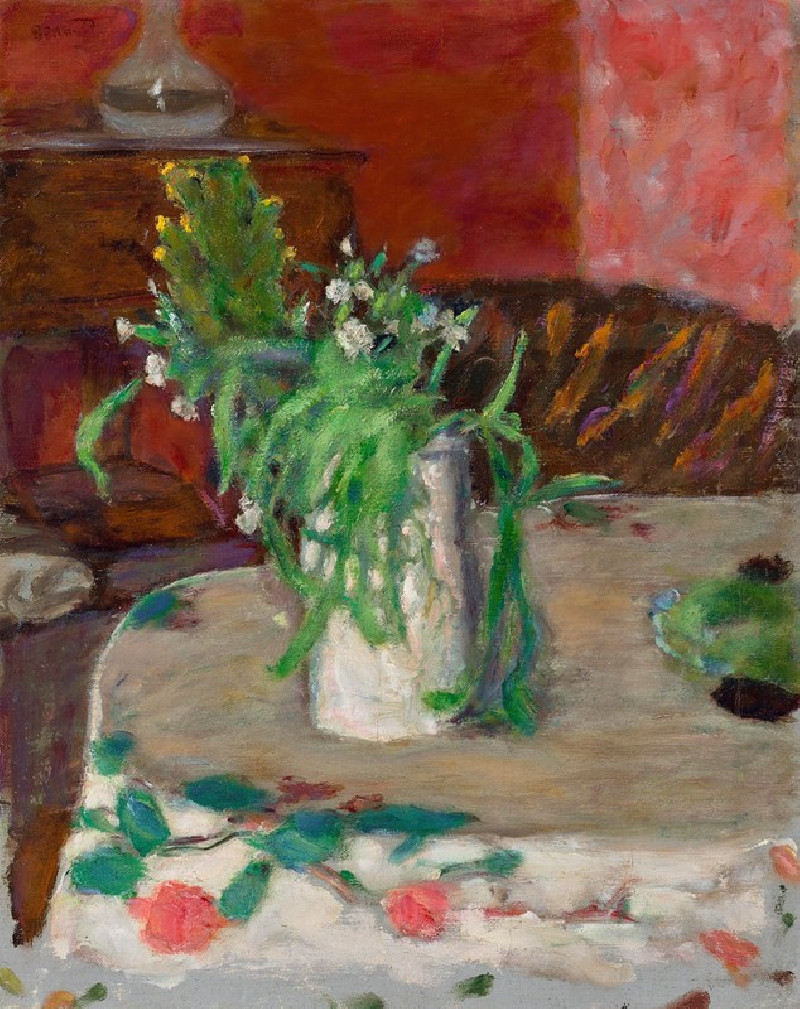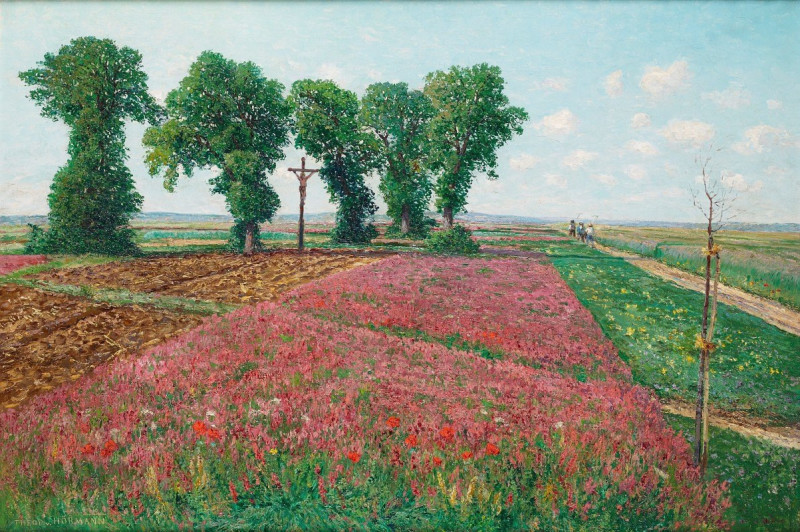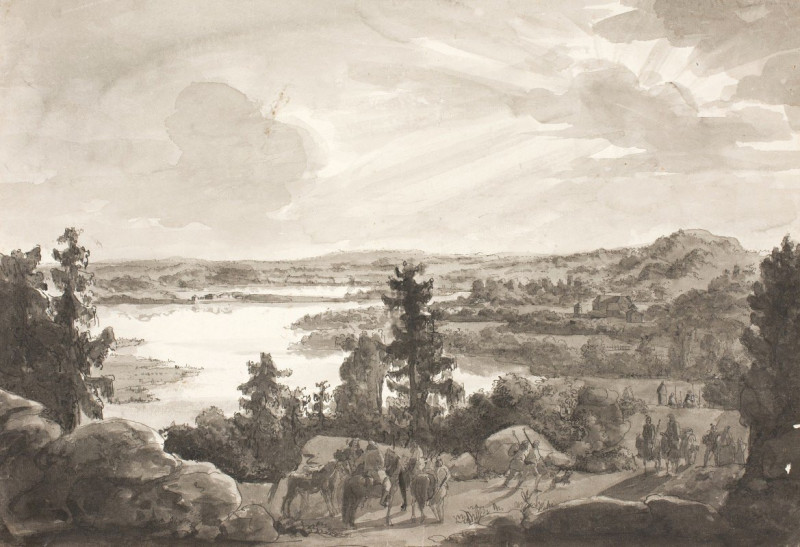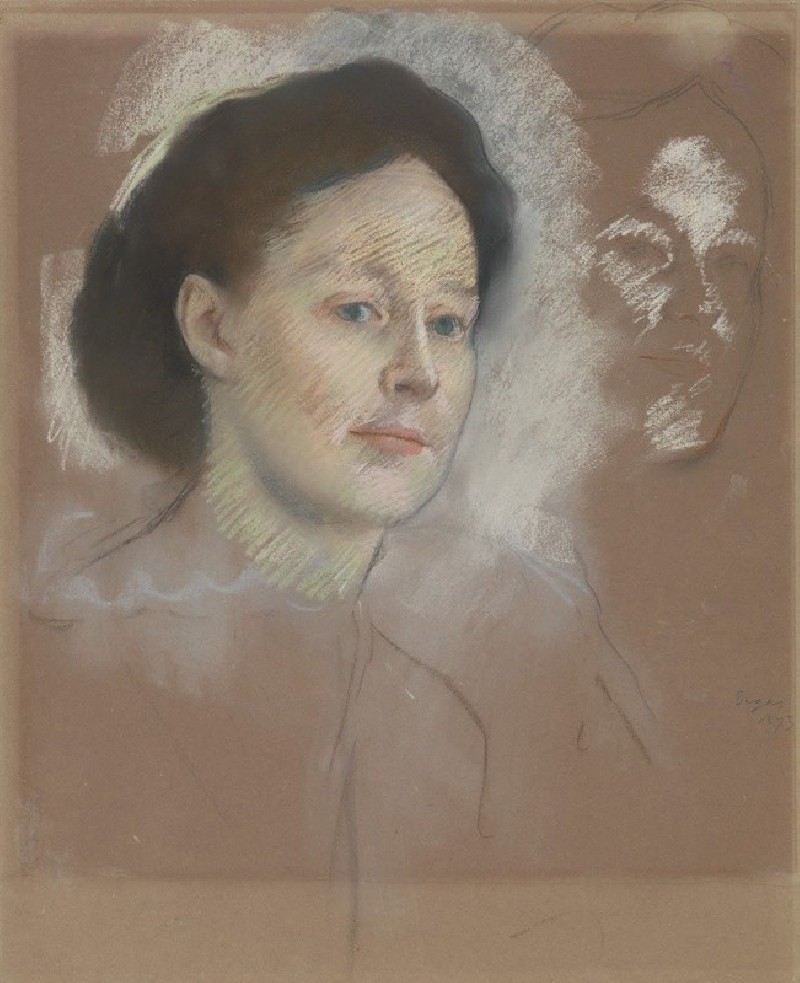Naurava Colarossi, 1881
Technique: Giclée quality print
Recommended by our customers
More about this artwork
This image shows a sketch by the Finnish artist Helene Schjerfbeck, titled "Naurava Colarossi" which translates to "Laughing Colarossi" from 1881. The sketch portrays a man with a broad and inviting smile, wearing a wide-brimmed hat that casts a shadow over his eyes, adding a hint of mystery and playfulness to his expression. His attire suggests a relaxed, possibly artistic or bohemian lifestyle, highlighted by the loose-fitting shirt and the casual manner in which his coat is draped over his shoulders.The artwork displays Schjerfbeck's characteristic brisk, confident strokes, which capture not just the physical features but also the vivacity of the subject. The man's laughter and lively expression suggest a moment of joy or amusement, captured swiftly and effectively by the artist.
Delivery
Returns
Helena Schjerfbeck (1862-1946) was a Finnish painter and one of the country's most significant artists. Born in Helsinki, Schjerfbeck began her artistic education at a young age and quickly developed her skills as a painter. She soon gained recognition for her realistic portraits of women and children, which were characterized by a sense of intimacy and melancholy. After studying in Paris in the late 1880s and early 1890s, Schjerfbeck returned to Finland and began to experiment with more modern styles and techniques. She became a leading figure in the Finnish art scene and exhibited her work regularly throughout the country.

